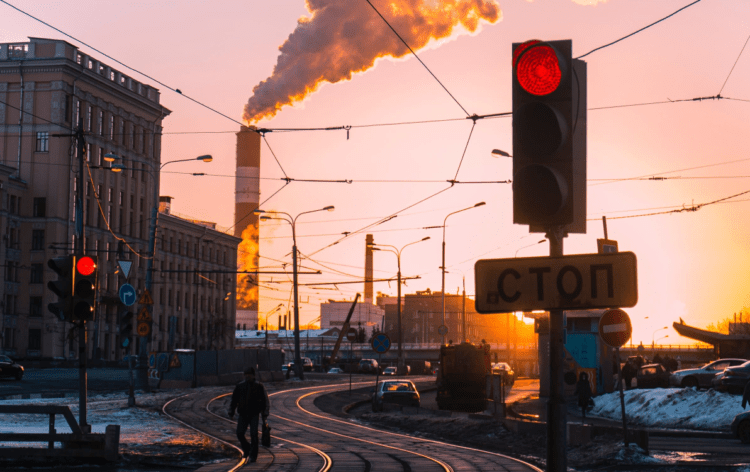Assessing the Impact of Sanctions on Russia’s Oil Commodity Trading: Challenges and Opportunities

Russia is well-known for being a major producer and exporter of natural resources like oil, gas, coal, and metals, which have played a vital role in its economic growth and development. As a result, Russia’s commodity markets have an influential role in global trade, with the nation accounting for a substantial share of the world’s total output of certain commodities.
Among these, oil holds a particularly significant place, as it makes up a substantial proportion of the country’s exports and revenue. Given Russia’s immense energy reserves and its geopolitical position, its policies and actions in the oil market can have a significant impact on global oil prices and supply dynamics.
This article will explore the state of Russia’s commodity markets, with a focus on its oil trade, and examine the country’s strategies and challenges in navigating the complex landscape of global commodity markets.
Russian Commodity Market
Russia’s commodity market is a crucial player in the global economy, as the country is one of the largest producers and exporters of natural resources worldwide. The nation boasts vast reserves of various commodities, including oil, natural gas, coal, metals, and timber, and these commodities have been a significant driver of Russia’s economic growth and development.
The Russian commodity market has several unique features, including its sheer size and diversity. With abundant natural resources, the country is well-positioned to supply a vast array of commodities to markets worldwide. Additionally, the nation has a well-developed infrastructure for the extraction, transportation, and export of these resources, allowing for efficient and reliable access to markets.
However, the Russian commodity market also faces numerous challenges, including geopolitical tensions, economic sanctions, and domestic governance issues. These challenges have led to significant fluctuations in commodity prices and hindered Russia’s ability to maximize its potential in global markets.
The reputation of the Russian commodity market has also been marred by corruption allegations and a lack of transparency. Despite efforts to improve governance and transparency in recent years, investors and market participants remain cautious when engaging with Russian commodities.
In terms of performance, the Russian commodity market has been relatively stable in recent years, despite the challenges mentioned above. The market’s resilience can be attributed to several factors, including the country’s strong domestic demand for natural resources and its ability to adapt to changing market conditions.
Russia’s role in the global commodity market is significant, with the nation playing a vital role in the production and export of several commodities. As a result, Russia’s policies and actions in these markets have a significant impact on global supply dynamics and prices.
In conclusion, the Russian commodity market is a complex and diverse landscape with unique features, trends, and challenges. Despite these challenges, the market remains a significant player in the global economy, with Russia’s vast reserves of natural resources providing a crucial source of supply for various commodities. The nation’s reputation, governance, and geopolitical environment, however, continue to pose challenges for market participants and investors. Overall, the performance and role of the Russian commodity market are crucial factors to watch for those interested in global commodity markets.
Oil Commodity Trading in Russia
After four months, the effectiveness of the sanctions placed on Russia by Ukraine’s allies is unclear. A price cap was imposed on seaborne Russian oil sales with the help of Western shippers, insurers, and legal providers. A cap on refined products was also added. However, the policy is hampered by conflicting goals of reducing Moscow’s revenues while keeping Russian oil flowing.
The US government urged Western oil traders to continue shipping Russian oil, resulting in the use of shadow fleets by lesser-known companies. Despite these issues, most sanctioning governments view the policy as generally successful, but many signs suggest otherwise. The Urals benchmark is significantly lower than the international Brent price, but the discount is not reflected in pricing at Russia’s Pacific ports, where exports have been diverted. It is also unclear how reliable pricing indices are in economic war conditions, as traders have incentives to under-report. The refined products’ price cap is even more complicated, with loopholes and challenges in establishing provenance.
To improve the effectiveness of the policy, stricter monitoring and transparency in contracts are necessary. The caps should be gradually lowered, taking into account the impact of OPEC+ cuts on oil prices. The EU’s sanction regulations require frequent reviews of the caps, but the coalition has yet to address this. However, a lower cap may result in Russia reducing its exports, causing concern among Western countries with significant tanker fleets, which could lose business to rivals in non-sanctioned jurisdictions. Western leaders must recognize that some risks are inevitable if they want to continue squeezing Putin.


























Comments (0 comment(s))